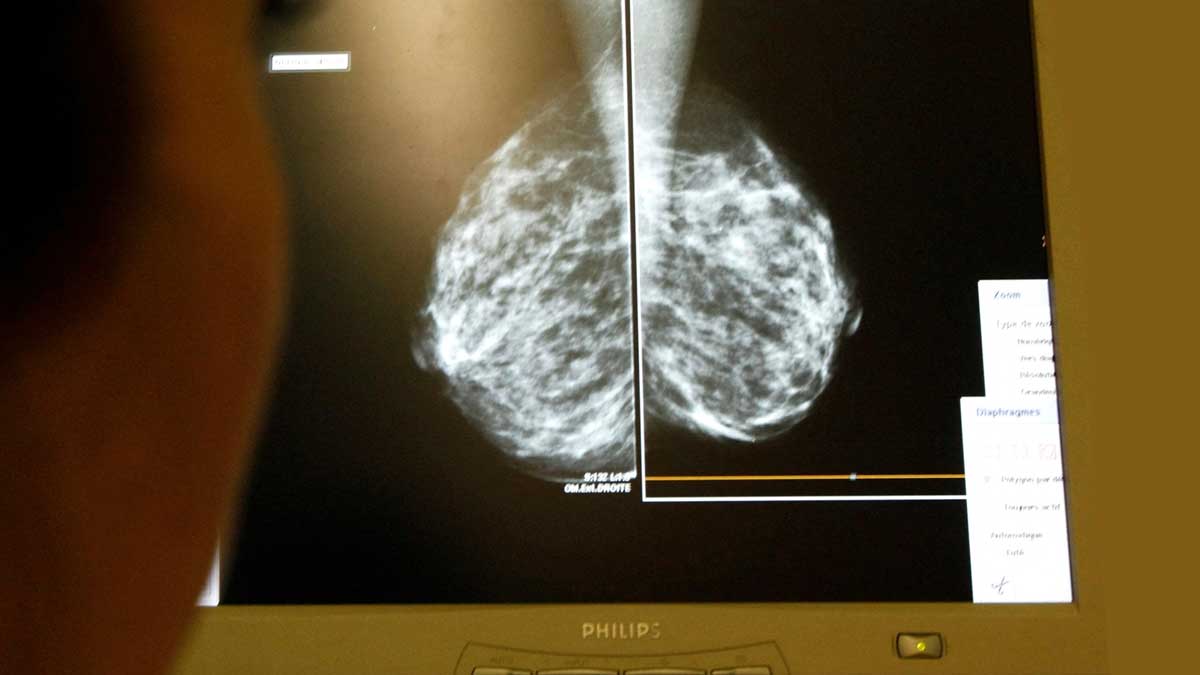- Home
- Billionaires
- Investing Newsletters
- 193CC 1000
- Article Layout 2
- Article Layout 3
- Article Layout 4
- Article Layout 5
- Article Layout 6
- Article Layout 7
- Article Layout 8
- Article Layout 9
- Article Layout 10
- Article Layout 11
- Article Layout 12
- Article Layout 13
- Article Layout 14
- Article Sidebar
- Post Format
- pages
- Archive Layouts
- Post Gallery
- Post Video Background
- Post Review
- Sponsored Post
- Leadership
- Business
- Money
- Small Business
- Innovation
- Shop
Recent Posts
Breast Cancer Screening Now Starts at 40

The U.S. Preventive Services Task Force has issued new guidelines recommending that women begin biennial screening for breast cancer at age 40, a significant departure from its 2016 recommendation to start at age 50. The updated guidelines, published in the medical journal JAMA Network, now advise cisgender women and individuals assigned female at birth, including transgender men and nonbinary people, who are at average risk for breast cancer to undergo screening every other year starting at age 40 and continuing until they reach 74.
This change comes as certain cancers are being diagnosed at younger ages, highlighting the importance of early detection. The American Cancer Society has also recommended screening for breast cancer to begin in the 40s, with annual mammograms recommended between the ages of 45 and 54. Similarly, the New American College of Radiology and Society of Breast Imaging recommended earlier screenings in 2018, aligning with the new task force guidelines.
Susan G. Komen, a leading breast cancer organization, has expressed general support for the updated recommendations but emphasizes the importance of personalized discussions between patients and healthcare providers to determine the best approach for each individual.
Breast cancer is the second-most common type of cancer and the second-leading cause of cancer death for women in the United States. Various factors, including family history, ovarian cancer diagnoses, and gene mutations, can increase the risk of developing the disease at an earlier age. There has been a noted increase in early-onset breast cancer, with diagnoses occurring between the ages of 18 and 45. A study published in JAMA Network Open in 2023 found that breast cancer had the highest number of early-onset cases among multiple cancer types in 2019, highlighting the need for earlier screenings.
Despite advances in detection and treatment, significant racial disparities persist in breast cancer outcomes. Black women are more likely to die from the disease compared to any other racial or ethnic group, according to the American Cancer Society. Additionally, white, Asian, and Pacific Islander women are more likely to be diagnosed with localized breast cancer compared to Black, Hispanic, American Indian, and Alaska Native women.
Each year, approximately 240,000 women and over 2,100 men are diagnosed with breast cancer in the United States. The American Cancer Society estimates that in 2024, more than 310,000 new cases of invasive breast cancer will be diagnosed in women, with over 42,000 estimated deaths from the disease. These figures underscore the importance of early detection and access to screening for all individuals at risk for breast cancer.
Recent Posts
Categories
- 193 Countries Consortium Partner1
- 193cc Digital Assets2
- 5G1
- Aerospace & Defense48
- AI37
- Arts3
- Banking & Insurance11
- Big Data3
- Billionaires1,467
- Boats & Planes1
- Business332
- Careers13
- Cars & Bikes79
- CEO Network1
- CFO Network17
- CHRO Network1
- CIO Network1
- Cloud10
- CMO Network18
- Commercial Real Estate7
- Consultant1
- Consumer Tech194
- CxO1
- Cybersecurity73
- Dining1
- Diversity, Equity & Inclusion4
- Education7
- Energy8
- Enterprise Tech29
- Events11
- Fintech1
- Food & Drink2
- Franchises1
- Freelance1
- Future Of Work2
- Games149
- GIG1
- Healthcare79
- Hollywood & Entertainment203
- Houses1
- India’s 1000 Richest1
- Innovation46
- Investing2
- Investing Newsletters4
- Leadership65
- Lifestyle11
- Manufacturing1
- Markets20
- Media327
- Mobile phone1
- Money13
- Personal Finance2
- Policy569
- Real Estate1
- Research6
- Retail1
- Retirement1
- Small Business1
- SportsMoney42
- Style & Beauty1
- Success Income1
- Taxes2
- Travel10
- Uncategorized14
- Vices1
- Watches & Jewelry2
- world's billionaires1,436
- Worlds Richest Self-Made Women2
Related Articles
Musk Endorses Mounjaro, Backs Affordable Weight-Loss Drugs
Elon Musk, the CEO of Tesla, made headlines on Christmas Day with...
By 193cc Agency CouncilDecember 27, 2024What Healthcare Can Learn from Nvidia’s Success
The tech industry is undergoing a seismic transformation, with two of its...
By 193cc Agency CouncilDecember 16, 2024Salmonella Triggers Recalls of Costco Eggs and Cucumbers
The recent salmonella outbreak has prompted the recall of two major food...
By 193cc Agency CouncilNovember 30, 2024Bird Flu Found in Raw Milk in California, Recall Issued
California health authorities have confirmed the presence of the bird flu virus...
By 193cc Agency CouncilNovember 25, 2024















Leave a comment